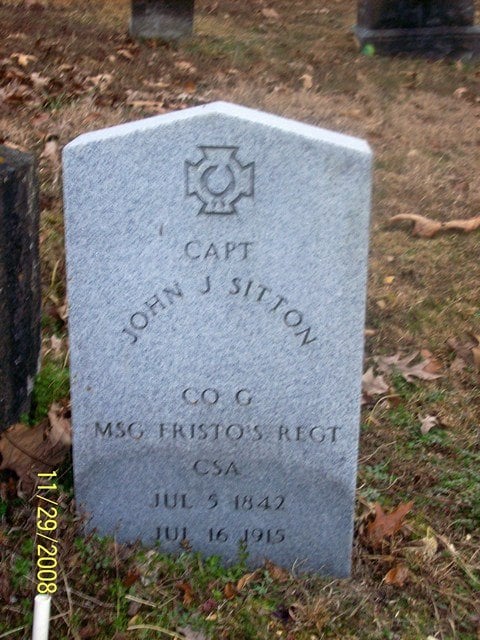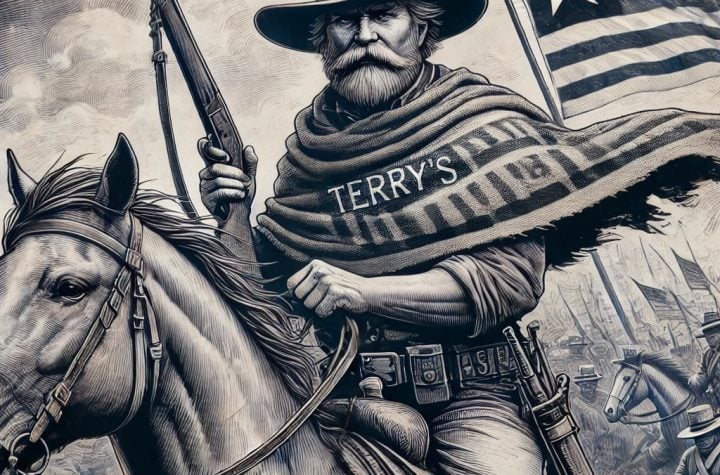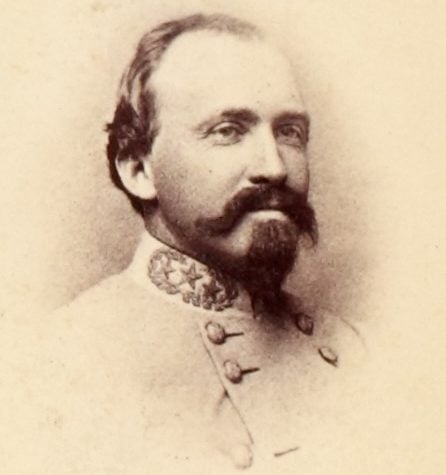Nowhere in any other battle area of the Civil War was the fight between the just and unjust, between liberty and tyranny more clearly shown than in Missouri. Toughened by a rough-hewed frontier heritage, Missourians entered the war with a determined willingness to fight.
General Van Dorn wrote to Jefferson Davis about the Missourians:
“During the whole of this engagement I was with the Missourians under Price, and I have never seen better fighters than these Missouri troops, or more gallant leaders than Price and his officers. From the first to the last shot they continually rushed on, and never yielded an inch they had won; and when at last they received orders to fall back, they retired steadily and with cheers…”
Eighteen year old John James Sitton was among this group of Confederate soldiers. He enlisted to fight, leaving behind his dream of a higher education. He soon found himself under General Sterling Price’s command as flag bearer. On a hot August day in 1861 he bravely carried the Missouri flag into one of the bloodiest and important battles of the war to date at Wilson’s Creek With the victory, the Confederates were able to take control of southwestern Missouri.
But Sitton was not only a hard fighting warrior, but also a careful journalist. He wrote daily notes on any scrap or slip of paper, keeping a detailed record of every movement and happening during his entire service.
His journal survived the battle and the elements against all odds. One time when Sitton buried it for safekeeping, hogs dug it up and scattered all the pages. When he was wounded at Big Blue, Sitton put his papers in the hands of an officer who was later killed in Oregon County. He thought he had lost forever the papers and all the history in them, but he miraculously recovered the precious documents in 1866.
The writings of this Missouri Confederate soldier are forever preserved in three-volume journal, including scrapbooks, miscellaneous papers, and photographs. It is an important historical documentation of the action and life experiences of a Confederate’s view of the Civil War in Missouri.
Sitton went on to become an accomplished and outstanding citizen of the state. At the time of his death in 1915 he was eulogized as the “soul of honor” and a kind and generous man. He was one of the region’s best known citizens.
![]()





More Stories
General Dwight D. Eisenhower’s Reflection on Robert E. Lee
Sad Woke Charlottesville liberals Melt down infamous statue of Robert E Lee
NC Appeals Court rules for Town of Louisburg in removal of Confederate monument